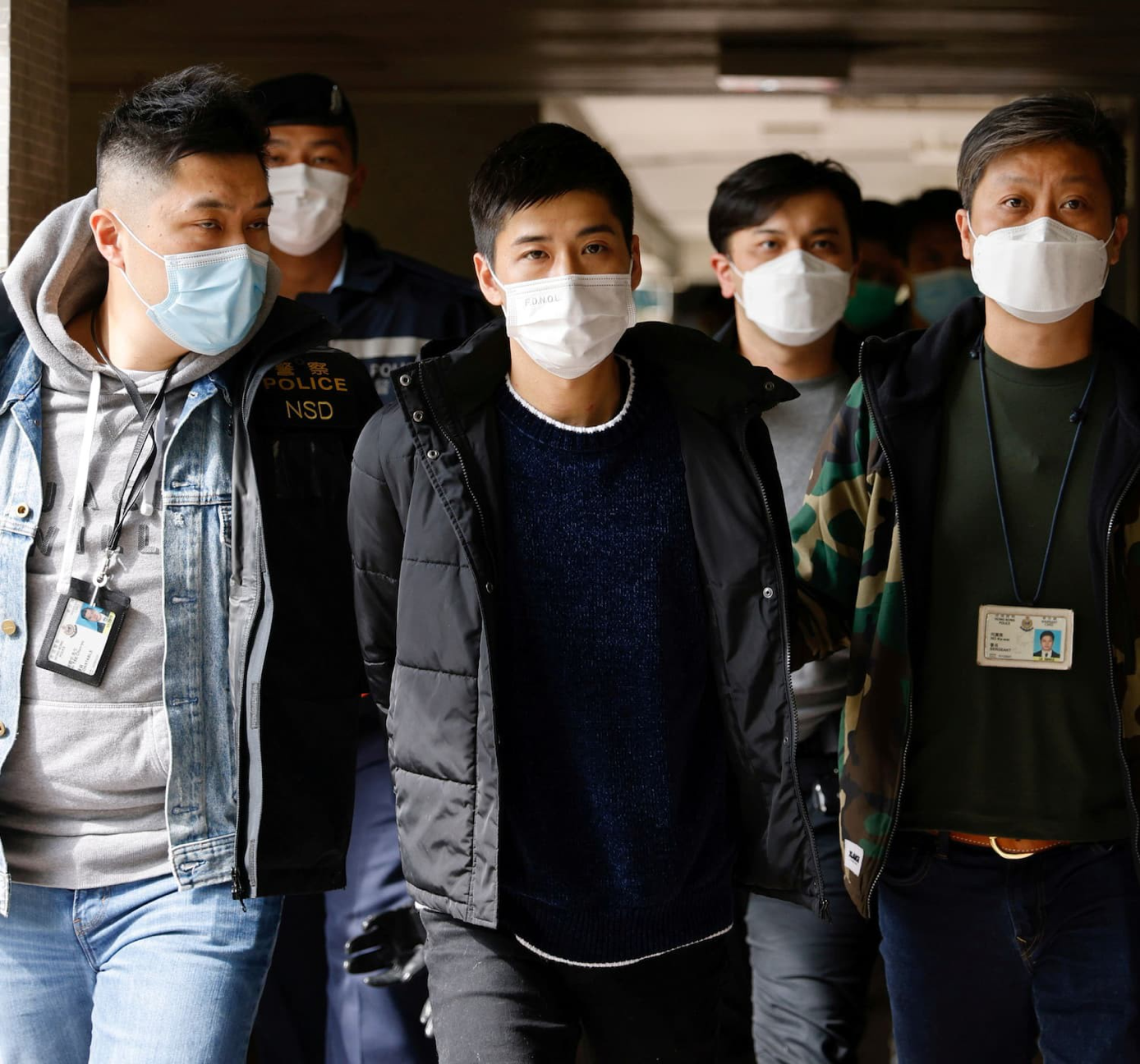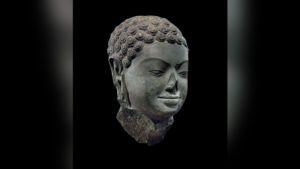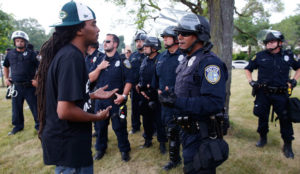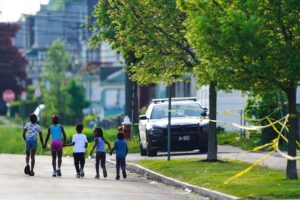HONG KONG — Before dawn, Facebook news feeds here began filling up, post upon post detailing arrest after arrest. A crackdown on the city’s democracy movement was unfolding.
By late Wednesday morning, at least 53 Hong Kong residents — former lawmakers, activists and an American lawyer among them — had been detained under Beijing’s new national security law, and their offices and homes raided. Accused of subversion, they face up to life in prison for holding a primary vote last year ahead of legislative elections that were ultimately postponed and which many of them were barred from contesting.
The raids, which involved more than 1,000 officers, marked the most dramatic onslaught in Chinese President Xi Jinping’s transformation of once-freewheeling Hong Kong into a city gripped by fear under authoritarian rule. China has moved in recent months to reshape Hong Kong institutions, including schools, the media and the legislature, and observers warned that the sweep signaled more to come.
Far from preserving Hong Kong’s way of life in the post-colonial era, as it promised, Beijing is deploying a variation of tactics honed in its repressive campaigns in Tibet and Xinjiang to crush Hong Kong civil society and political opposition, rights groups and activists say.
“The idea of ‘political opposition,’ a common phenomenon in democratic systems, is seen by Beijing as inherently illegitimate,” said Jude Blanchette, the Freeman Chair in China Studies at the Center for Strategic and International Studies. “It is tragic yet predictable that the Xi administration will continue to squeeze [Hong Kong] until there’s total submission.”
Carl Minzner, an expert on Chinese law and governance at Fordham University, added that Beijing’s control in Hong Kong, as in China’s other restive peripheral regions, involves “a particular emphasis on remodeling communities viewed as insufficiently patriotic and loyal” through ideological education and mass arrests, and efforts to co-opt “institutions that Beijing feels it does not fully control.”
John Lee, Hong Kong’s secretary for security, lauded the police operation as “necessary” and accused those involved in the primary of attempting to paralyze the government by seeking to win a majority in the legislature. Police said more could be arrested and that the investigation was “ongoing.”
“The government will not tolerate subversion of state power,” Lee said. “This is severe, and we will prosecute accordingly.”
A spokesperson for the Chinese central government’s liaison office in Hong Kong said in a statement Wednesday that the office “firmly supported” the Hong Kong police and government in the detentions. The statement called the Hong Kong national security law a turning point from chaos to rule of law.
Hong Kong has emerged as a major point of tension in the U.S.-China relationship, posing a challenge to the incoming Biden administration. Under President Trump, Washington imposed sanctions on Hong Kong and Chinese officials responsible for undermining freedoms in the city and ceased special trade privileges for Hong Kong.
Antony Blinken, President-elect Joe Biden’s nominee for secretary of state, said in a tweet that the arrests were “an assault on those bravely advocating for universal rights” and that the new administration will “stand with the people of Hong Kong and against Beijing’s crackdown on democracy.”
A statement from British Foreign Secretary Dominic Raab called the mass arrests “a grievous attack on Hong Kong’s rights and freedoms” and said Chinese authorities “deliberately misled the world about the true purpose of the National Security Law, which is being used to crush dissent and opposing political views.”
Punished over a primary
The dozens of people arrested Wednesday were either candidates in or had helped facilitate a primary in July designed to select pro-democracy candidates who would run in legislative elections.
Held days after Beijing enacted the new security law that sharply curtailed freedoms in Hong Kong, the primary elections symbolized defiance and a way for residents to express their will. Street protests against Beijing’s tightening grip by that point had fizzled out because of the pandemic and the new law, which imposes heavy prison sentences for broadly worded crimes like “secession” and “foreign interference.”
Shops and restaurants that support the democracy movement transformed into polling stations. Far exceeding expectations, over 600,000 people participated, choosing candidates who were more resistant to cooperation with Beijing than some of the more moderate stalwarts of the pro-democracy camp. They included activists Joshua Wong, Lester Shum and Gwyneth Ho.
Benny Tai, a legal scholar and activist who launched protests in 2014 that spiraled into a 79-day occupation of city streets, said the election represented a new form of civil disobedience, and that if the democratic camp had a majority in the legislature, it could stymie the Hong Kong government’s efforts to achieve anything, even passing a budget. The primary was lauded by Secretary of State Mike Pompeo, who praised voters for making “their voices heard in the face of the Chinese Communist Party’s efforts to suffocate the territory’s freedoms.”
The most popular and interesting stories of the day to keep you in the know. In your inbox, every day.
Beijing’s liaison office declared the exercise illegal, saying that the goal of the opposition camp was to “seize the ruling power” of Hong Kong and that the candidates intended to carry out a “color revolution.” Lee on Wednesday added that “the plan is to create mutual destruction, so that society jumps off the cliff.”
Only half of Hong Kong’s legislature is elected. Its chief executive, meanwhile, is selected from a field of candidates picked by Beijing, and then voted on by a committee of about 1,200 members.
The will of the people, however, was quashed by Hong Kong authorities, who disqualified many of the winning candidates and then postponed the election.
The sweep Wednesday also took aim at the media. Police served three independent Hong Kong news organizations with search warrants, demanding information related to the candidates and the poll, according to journalists working there.
Lau Siu-kai, a senior adviser to Beijing on Hong Kong policy, said the government had warned the pro-democracy camp not to go ahead with the primary.
“The warning was defied and ignored,” he said. The priority, he added, should be to safeguard national security.
Presumption of guilt
Several others, including billionaire media tycoon Jimmy Lai and a man who rode a motorcycle that rammed into police in unclear circumstances, had previously been arrested and charged under the national security law. Only Lai was briefly granted bail, a decision criticized by Chinese state media as contrary to the provisions in the security law, by a lower court. Hong Kong’s top court subsequently revoked Lai’s bail, sending him back to jail on New Year’s Eve.
This precedent, legal experts and associates of those arrested Wednesday say, raises concern that they would not be granted bail if charged under the security law — leaving dozens in detention until formal hearings begin. Of the more than 50 arrested, many were losers in the poll and have continued their work in the community and civil society, including Jeffrey Andrews, Hong Kong’s first ethnic minority candidate to run in legislative elections and a longtime advocate of minority and refugee rights.
Others arrested included John Clancey, an American lawyer who represented one of the pro-democracy groups that organized the primary. A video shared widely Wednesday showed Clancey hobbling away from his office building on a single forearm crutch before police escorted him into a black van. The U.S. Consulate in Hong Kong did not respond to a request for comment.
Democracy activists from Hong Kong, a growing number of whom have fled to Western countries to avoid arrest and continue their advocacy, are lobbying the incoming Biden administration to impose tougher penalties against Beijing and for the European Union to call off an investment deal with China.
Human rights groups such as Amnesty International and Human Rights Watch, along with Western politicians, condemned the arrests as a blatant violation of peaceful expression and the right to association.
“Beijing once again has failed to learn from its mistakes in Hong Kong: that repression generates resistance, and that millions of Hong Kong people will persist in their struggle,” said Maya Wang, a senior China researcher at Human Rights Watch.
Other experts on China, however, struck a more somber tone, pointing to the Chinese Communist Party’s record.
“The iron lesson Beijing has taken away from dealing with political disturbances, both large and small, over its 100-year history is that violence and a tarnished global reputation are always preferred over the possible success of democratic movements,” said CSIS’s Blanchette.
Lyric Li in Beijing contributed to this report.




